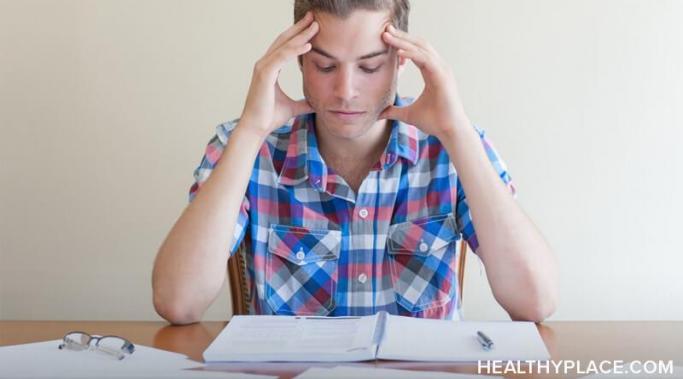Blogs
I experience seasonal anxiety, so naturally I expect it--but never as soon as it appears. Today I peered out the window, and there it was. A wave of anxiety rolled through my body. It was a familiar jolt that reacted to a common anxiety trigger—a cold, blustery day with a sky darker than my favorite charcoal gray t-shirt. Autumn is here and winter is coming. Naturally, seasonal anxiety is too.
Setting goals for posttraumatic stress disorder (PTSD) recovery can be difficult, in part because PTSD impacts every aspect of daily living, every day. When seeking help for recovery, it is understandable to want to feel better as quickly as possible in order to put the worst behind you and move on. Sometimes it can be difficult to notice what progress is being made when you are still experiencing the symptoms of PTSD daily. This is where understanding your PTSD diagnosis as well as any coexisting conditions and setting goals for PTSD recovery can help you feel successful.
Creative outlets enhance your recovery from mental illness and can have a remarkable effect on our emotional wellbeing, whether one has a mental illness or not. Art played an integral part early in my recovery from bulimia and schizoaffective disorder, and it remains a very important part of my life today. Art is my medicine, but any creative pursuit can enhance your recovery from mental illness.
I have been in self-harm recovery for about 10 years now, often dealing with what triggers my self-harm urges. During that time, it has always been difficult for me to identify what exactly is triggering my self-harm urges. It wasn't until I went to my last therapist that I got the tools to figure out my underlying patterns of self-injuring. In this post, I want to go over the three main reasons behind why I started self-harming. Maybe your triggers for self-harm urges are similar.
I avoided Student Disability Services in college because of mental health stigma. Although I was diagnosed with various mental health conditions as a teen, it wasn’t until college that I truly realized the debilitating effect mental illness could have on my life. I was highly resistant to the idea when an on-campus counselor first advised me to make an appointment with my university’s Student Disability Services department. Sure, I needed help, but I didn’t need that kind of help.
Do family holidays trigger your anxiety? Family relationships can trigger anxieties, so chances are that the holidays are particularly challenging. While holidays can be a time to connect with loved ones, there are many situations that may lead to anxiety symptoms. The question becomes, "How can we deal with anxiety triggers when family holidays are around the corner?"
Renaming attention-deficit/hyperactivity disorder (ADHD) is on my mind because, in honor of ADHD Awareness Month, I binged on lectures by ADHD-expert Dr. Russell Barkley. He points out that “attention-deficit/hyperactivity disorder” is a poor term for the condition, and he is not alone in thinking that renaming ADHD is a good idea. Fellow ADHD-specialist Dr. Edward Hallowell claims that “ADHD is a terrible term,” and many with this condition agree, myself included. I started to wonder about the history of the term, if there were alternative names for the disorder, and if renaming ADHD could reduce ADHD stigma.
I love getting new books, but attention-deficit/hyperactivity disorder (ADHD) makes reading difficult. Discovering what is between book covers is a wonderful experience. However, finishing those books is a different issue. As is often the case for people with ADHD, I have difficulties with follow-through on things, and that includes reading; other people with ADHD find reading difficult for other reasons.
How can we avoid disaster while partying when living with schizoaffective disorder? We all know that the desire to party is a fundamental aspect of life. Birthdays happen every year, and often parties are held for events such as Independence Day, Christmas, or even Thanksgiving, not to mention people's desire to engage in events such as raves and festivals. However, we all know that partying is usually associated with risky behaviors, such as drinking and taking drugs. This is often the last thing a schizoaffective person should be doing. So how can we avoid problems when partying with schizoaffective disorder?
During periods of financial struggle, getting mental health help is a big issue. There seems to be no way to pay for mental health services, even though you need help. When you look into finding a psychiatrist, you realize it's hard to find one in your price range. What other mental health care options do you have if you're financially unstable? Is there any mental health help for those who struggle financially?









